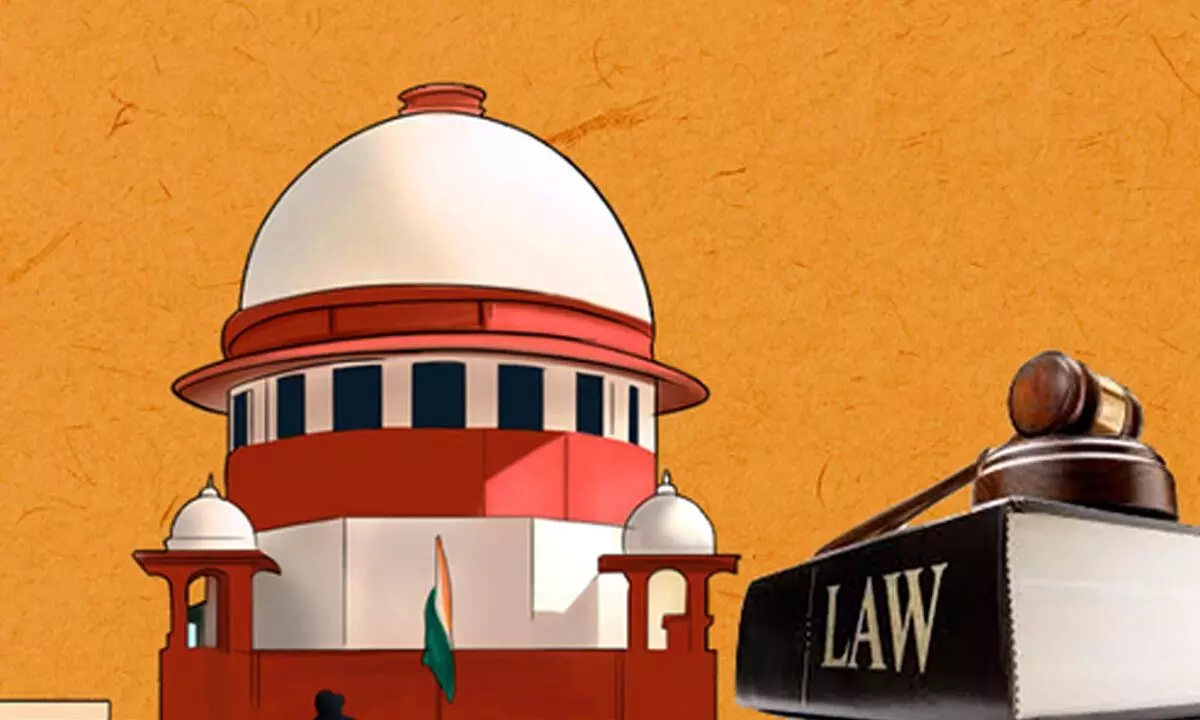Live
- PM awarded Kuwait's highest honour
- TTD’s ambitious path with 'Vision 2047' for Tirumala future
- After temple, ASI discovers 150-yr-old stepwell in Sambhal
- Govt to launch 3 apps to protect consumers in digital marketplace
- NDA to fight Bihar polls with Nitish as CM face
- Allu Arjun refused to leave even after he was told of woman’s death
- Bareilly court summons Rahul Gandhi
- ‘Systematic conspiracy’ to undermine EC’s integrity: Kharge
- Popcorn tax slabs anger Congress
- India, Kuwait elevate ties to strategic level
Just In
Unilateral appointment of arbitrators in public-private contract violates Article 14: Supreme Court

Supreme Court of India
The Supreme Court on Friday ruled that the unilateral appointment of arbitrators by a government entity in a public-private contract violates Article 14 of the Constitution.
New Delhi: The Supreme Court on Friday ruled that the unilateral appointment of arbitrators by a government entity in a public-private contract violates Article 14 of the Constitution.
A 5-judge Constitution Bench, headed by CJI D.Y. Chandrachud, said that since the activities of the government have a public element, it is incumbent upon the government to ensure that it enters into a contract with the public without adopting any unfair or unreasonable procedure.
"Therefore, government agencies have to consider the principles of equality and non-arbitrariness when crafting arbitration procedures, including the procedure for the appointment of arbitrator," it added.
The opinion, concurred by Justices J.B. Pardiwala and Manoj Misra, said that unilateral appointment clauses in a public-private contract fail to provide the minimum level of integrity required in authorities performing quasi-judicial functions such as arbitral tribunals and a unilateral appointment clause is against the principle of arbitration, that is, impartial resolution of disputes between parties.
Further, the apex court held that the principle of equal treatment of parties applies at all stages of arbitration proceedings, including the stage of appointment of arbitrators.
"The Arbitration Act does not prohibit PSUs from empanelling potential arbitrators. However, an arbitration clause cannot mandate the other party to select its arbitrator from the panel curated by PSUs," it added.
The SC clarified that the law laid down in its judgment will apply prospectively to arbitrator appointments.
In his separate opinion, Justice Hrishikesh Roy opined that the independence and impartiality of the arbitrator must be examined within the statutory framework of the Arbitration Act and public law and constitutional principles should not be imported into arbitration proceedings.
Justice P.S. Narasimha, in his opinion, said that arbitration agreements enabling one of the parties to unilaterally constitute an arbitral tribunal do not inspire confidence of independence and after scrutinising the agreement, the court can hold them to be invalid. "It is not permissible for the court to give an advance declaration that all such agreements which enable one of the parties to unilaterally constitute the arbitral tribunal would be void per se. No two agreements are the same and it is necessary for the court to examine the text and context of the agreement," he added.

© 2024 Hyderabad Media House Limited/The Hans India. All rights reserved. Powered by hocalwire.com






